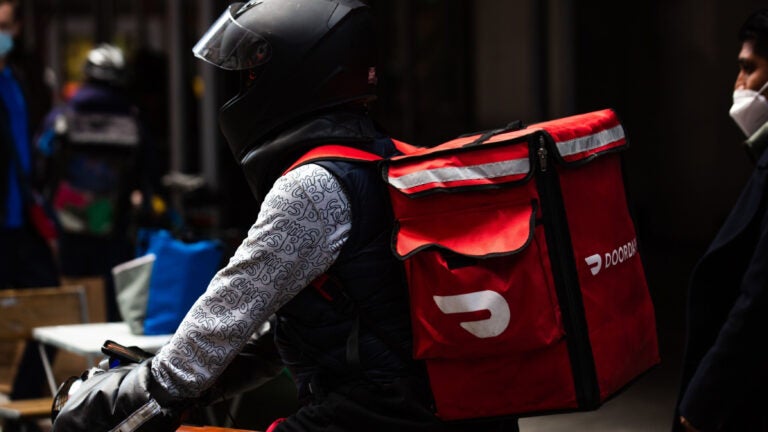Boston’s New Food Delivery Regulations: A Game Changer for Safety
Delivery Giants Under Scrutiny
In a groundbreaking move toward enhancing pedestrian safety, Boston has mandated that third-party restaurant delivery services—like Uber Eats, GrubHub, and DoorDash—must obtain new operating permits. This ordinance, recently approved by the Boston City Council with an 11-2 vote, aims to tackle the alarming issues of reckless driving and traffic congestion spurred by these delivery operations.
Mayor Michelle Wu introduced the legislation in February, responding to rising public concerns regarding delivery-related hazards on the city’s streets. With this new rule set to take effect in nine months, companies that handle over one million orders annually will be required to register with Boston’s transportation department, a move that promises to revolutionize how food delivery is conducted in the urban landscape.
What’s Required From Delivery Companies?
The amended ordinance outlines a series of critical requirements:
Insurance Coverage: Delivery companies will need to provide liability insurance to protect against accidents involving their drivers, covering damages up to $50,000 for operators, $100,000 for third parties, and $30,000 for property damage.
Delivery Data Reporting: These companies must submit extensive data to city officials, including the number of orders completed, vehicle types used, and delivery times. This data will assist in managing safety and alleviating congestion in Boston.
- Penalties for Non-compliance: Companies failing to secure a permit face substantial fines of $300 per restaurant daily or $300 per order, a strong deterrent against non-compliance.
The ordinance, however, does not extend to smaller delivery services or those operated by major companies like FedEx, UPS, or Amazon, nor does it affect grocery delivery services such as Instacart.
Public Reaction and Delivery Companies’ Response
As with any regulatory shift, the response from delivery companies has been mixed. A DoorDash spokesperson expressed relief at the council’s decision to remove a proposed 15-cent delivery fee intended for enforcement and infrastructure improvements. “Hundreds of Boston customers, Dashers, and merchants made their voices heard loud and clear,” the spokesperson stated, emphasizing that this fee could have adversely impacted many stakeholders.
Similarly, Grubhub shared its gratitude over the fee’s removal but remained cautious about the ordinance’s broader implications. “While we still have concerns about the ordinance’s approach to street safety and its potential impact on delivery costs, we remain committed to working with lawmakers on comprehensive solutions,” a representative noted.
Ensuring Safety on Boston’s Streets
Councilors have emphasized the need for improved driver accountability. Councilor Sharon Durkan, who championed the ordinance, pointed out that third-party delivery platforms had often “operated as if rules don’t apply to them.” She argued that the existing business models prioritize speed and profits over safety, leaving residents and pedestrians vulnerable.
Councilor Ed Flynn voiced alarm over frequent reports of delivery drivers ignoring traffic signals. “Almost every day, someone tells me about someone going through a red light, or driving on the sidewalk," Flynn lamented. “In my opinion, this ordinance is a good start. Boston can no longer be the Wild West.”
Looking Ahead: The Future of Food Delivery in Boston
The new regulations mark a significant step toward increased safety and accountability for food delivery services in Boston. As the city prepares for these changes in the coming months, the hope is that these measures will foster a safer environment for pedestrians and drivers alike, paving the way for a sustainable food delivery ecosystem.
For more updates on local news and exciting developments in Boston, stay tuned!






